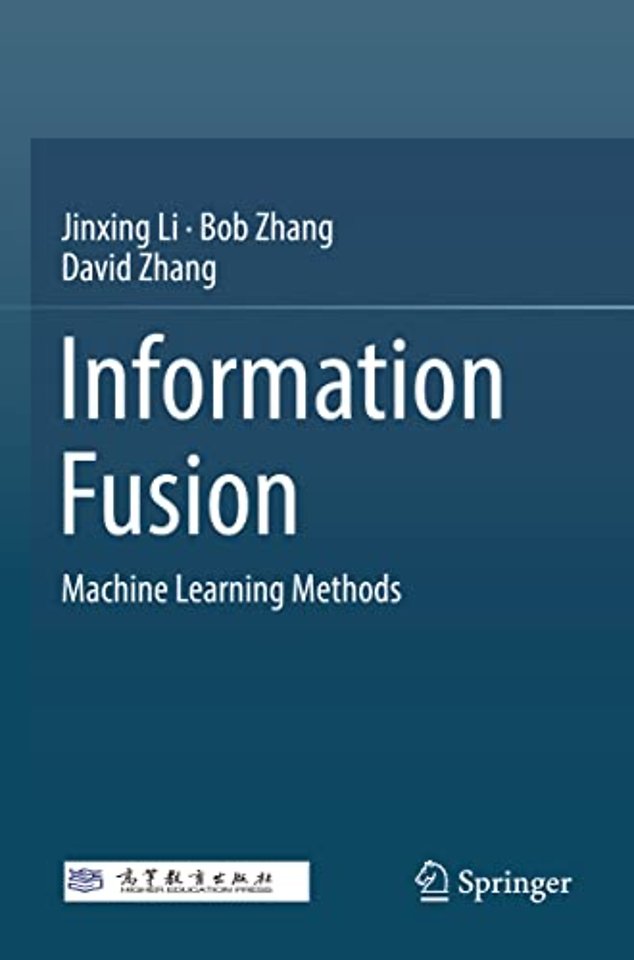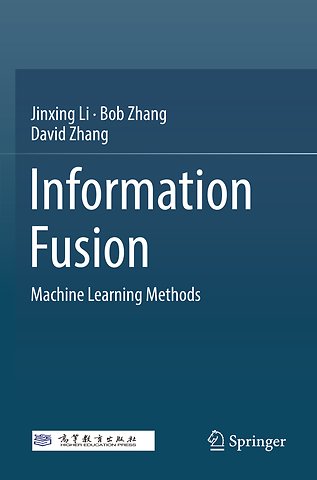Information Fusion
Machine Learning Methods
Paperback Engels 2023 1e druk 9789811689789Samenvatting
In the big data era, increasing information can be extracted from the same source object or scene. For instance, a person can be verified based on their fingerprint, palm print, or iris information, and a given image can be represented by various types of features, including its texture, color, shape, etc.
These multiple types of data extracted from a single object are called multi-view, multi-modal or multi-feature data. Many works have demonstrated that the utilization of all available information at multiple abstraction levels (measurements, features, decisions) helps to obtain more complex, reliable and accurate information and to maximize performance in a range of applications.
This book provides an overview of information fusion technologies, state-of-the-art techniques and their applications. It covers a variety of essential information fusion methods based on different techniques, including sparse/collaborative representation, kernel strategy, Bayesian models, metric learning, weight/classifier methods, and deep learning. The typical applications of these proposed fusion approaches are also presented, including image classification, domain adaptation, disease detection, image restoration, etc.
This book will benefit all researchers, professionals and graduate students in the fields of computer vision, pattern recognition, biometrics applications, etc. Furthermore, it offers a valuable resource for interdisciplinary research.
Specificaties
Lezersrecensies
Inhoudsopgave
Chapter 2. Information fusion based on sparse/collaborative representation.
Chapter 3. Information fusion based on gaussian process latent variable model.
Chapter 4. Information fusion based on multi-view and multifeature earning.
Chapter 5. Information fusion based on metric learning.
Chapter 6. Information fusion based on score/weight classifier fusion.
Chapter 7. Information fusion based on deep learning.
Chapter 8. Conclusion.
Anderen die dit boek kochten, kochten ook
Rubrieken
- advisering
- algemeen management
- coaching en trainen
- communicatie en media
- economie
- financieel management
- inkoop en logistiek
- internet en social media
- it-management / ict
- juridisch
- leiderschap
- marketing
- mens en maatschappij
- non-profit
- ondernemen
- organisatiekunde
- personal finance
- personeelsmanagement
- persoonlijke effectiviteit
- projectmanagement
- psychologie
- reclame en verkoop
- strategisch management
- verandermanagement
- werk en loopbaan







